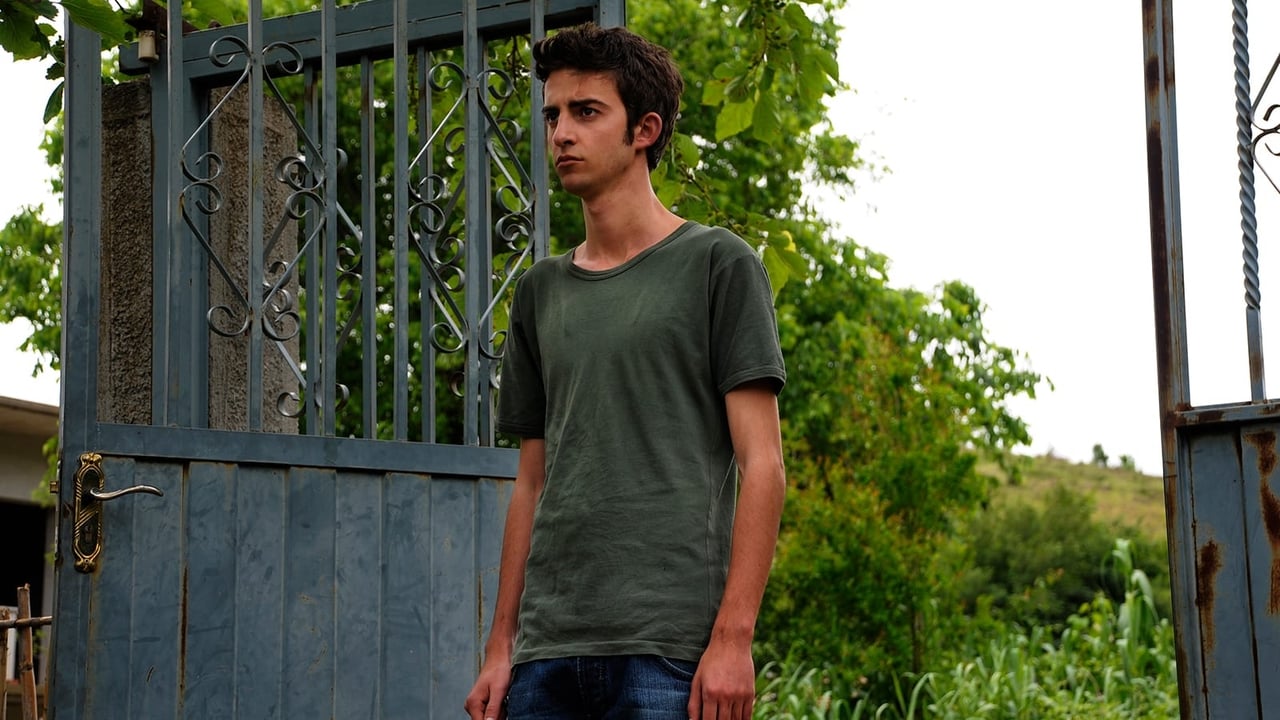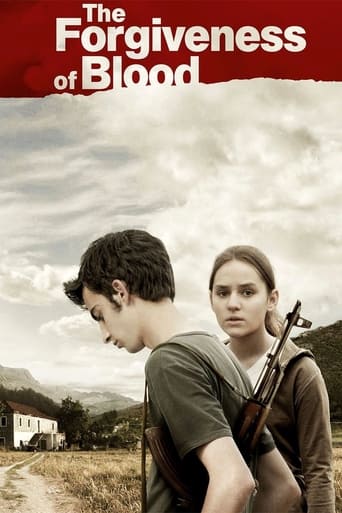Lucybespro
It is a performances centric movie
Libramedi
Intense, gripping, stylish and poignant
Aedonerre
I gave this film a 9 out of 10, because it was exactly what I expected it to be.
Walter Sloane
Mostly, the movie is committed to the value of a good time.
SnoopyStyle
This is a small Albanian movie about a blood feud in a small Albanian town. Rudina and Nik are normal kids in a relatively poor family. Their father earn a living delivering bread in the neighborhood. Access to a disputed road causes problems with the neighbor. When the father and a uncle kill that neighbor, only the uncle is caught. The neighbor's powerful family seeks retribution or blood feud. Age old customs causes more and more problems for the young kids who remain.There is an amazing underlying subject being dramatized. The old customs is just harrowing. However the movie moves a bit slow and the power of the situation is dissipated. The other missed opportunity is the actual attack that starts the entire story. It seemed obvious that they needed to show it. The power of brutality itself is needed given the subject of the movie is a blood feud. It seems odd that we're missing that scene.
Larry Silverstein
Joshua Marston, who brought to the screen the terrific film "Maria Full of Grace", directed and co-wrote this script along with Andamion Murataj. I found this movie to be a powerful human drama, set in the northern regions of Albania.Nik, admirably portrayed by first time actor Tristan Halilaj, stars as the oldest son of a close knit family of six. He is a typical teenager who goes to school, wisecracks with his friends, and pursues his interest in girls. His father, Mark, works a local bread route with an old horse and cart. However, one day an aggressive neighbor denies his father access to a shortcut across his land and threatens and intimidates him. The father returns with his brother Zef to "settle the score", and a fight breaks out whereby the neighbor is killed after he allegedly attacked the two brothers with a knife. Zef is caught and sentenced to 18 years in jail, but the father goes into hiding. This sets up a "blood feud" between the two families. I thought it was fascinating to see how these feuds are handled by the people in that region. There is a certain code of conduct that must be maintained as set forth in the Kanun. Elders meet to determine the best course of action for the family.Nik and his family are advised they need to stay in their home unless what they call a "besa" is issued, which is like a temporary pass to leave the house and not worry about any retaliations. Mediators will eventually try and work out a solution to the feud where both sides are satisfied.But as the weeks pass and no solution is found, the strain on the family becomes intense. His sister Rudina, also wonderfully played by Sindi Lacej, tries to keep the bread route going to help them survive. However, the threats and attacks on their family get more and more intense.It all spirals into a highly dramatic conclusion.Overall, I found the film to be somewhat slow moving but for those who enjoy a foreign film which is superbly acted, written, and directed with an interesting solid story it should be quite engrossing and enjoyable.
jdesando
Despite the screenplay awards from Berlin and Chicago about a blood feud between families, The Forgiveness of Blood serves only 109 minutes of mostly boredom. The Albanian Kunan code demands that with a murder, a member of the wrongful family must be killed or jailed.Dad is guilty and hiding, young Nik (Tristan Halilaj)is on house arrest, leading both a real and cinematic static life, to the extent that I looked at my watch, a gauche move allowable because I was the only patron in the house. While now and then Nnik ventures out of the house, most notably to see a girlfriend, most of the film is inside the house with nothing dramatic happening except a few bullet shots into the house and a fire.Even with those moments, director Joshua Marston doesn't infuse the action with meaning or analysis. Quickly it's back to waiting until besha (some relief) comes from the aggrieved family. We do get a glimpse of Albanian life, but not enough daily living for culture hounds.To add to the monotony, the shots are largely washed out either because our bulb was not strong or the digital apparatus didn't do what promised to be an interesting visual landscape. I will await the next Albanian film because Forgiveness of Blood holds promise of better stories to come.
albnet
The movie is somehow good but I had some concerns. The good part is that the movie create a full story, the scenes are mostly connected and the viewer can follow. Second, the actors are not famous Albanian actors, which makes the film more realistic. Third, local dialect was used, adding still some realism (many Albanian movies create surreal literal scripts with little connection to everyday life). Let's come to the critiques.My concerns are basically assumed in one phrase: "the film is tight". It doesn't change camera lenses, it lacks wide shots of the village to add a spatial sense between scenes. It all happens in three buildings and few streets. All this can easily find a reason in budget limits, but I guess the film could be enriched visually with a little more effort.Another limit was in the script. The film starts and ends without nobody explaining what is the kanun or besa. Foreign viewers would only guess what is going on, but also many Albanians don't know the rules. Leaving things unexplained makes the viewer nervous. Take a look to the review before mine. There is a long introduction to explain what the movie should have mostly told. This is not a good sign. A movie should speak for itself leaving little space to reviewers for their stories. We have to imagine that a wide public will see this film. And many may give bad ratings because they didn't read Wikipedia to prepare themselves for the movie. This part could have been fixed by adding short scenes of a child asking "Why do we have to stay closed, what is the kanun", "What is BESA, can we have some more of it (laughter)". An adult could have explained what the viewer needed to know. And this would be a real situation because a 5 years old child doesn't stay locked at home without asking why. From what I see there is still some confusion about the concept of BESA. This is not a honor code to be proud, its part of the rules in the kanun (like today's laws). Simply speaking, it's an armistice. The family which have been damaged gives to the family that damaged them the right to get out of home without risking to be killed. Since this agreement was verbal, Albanians say they have a tradition in keeping promises. However, this is not a promise but a rule. If a family broke their promise there would be serious consequences from the kanun rules itself.My last concern was the color black. I don't know for what reason the color black was a dark gray. Since the movie have a lot of dark scenes, this was quite noticeable. I thought the problem was the cinema, but then I remembered the trailer on youtube suffering of the same problem.Despite my critiques, a big thanks is due to the producers and Marston, who spend time and effort to tell an Albanian story. I loved the part of his interview where he says that he tried to find a story that hasn't been seen before. Something interesting in a topic otherwise well known to the public (revenge and feuds).

